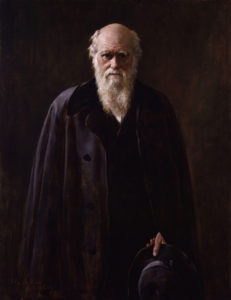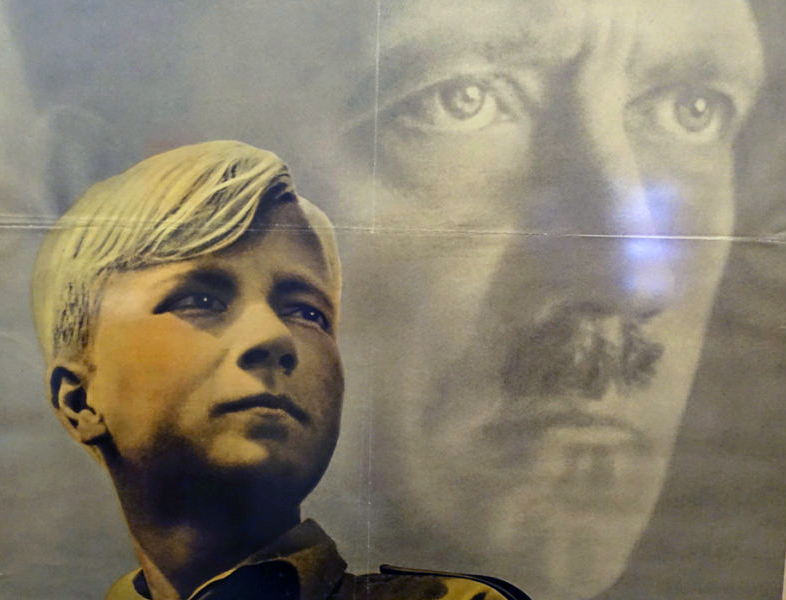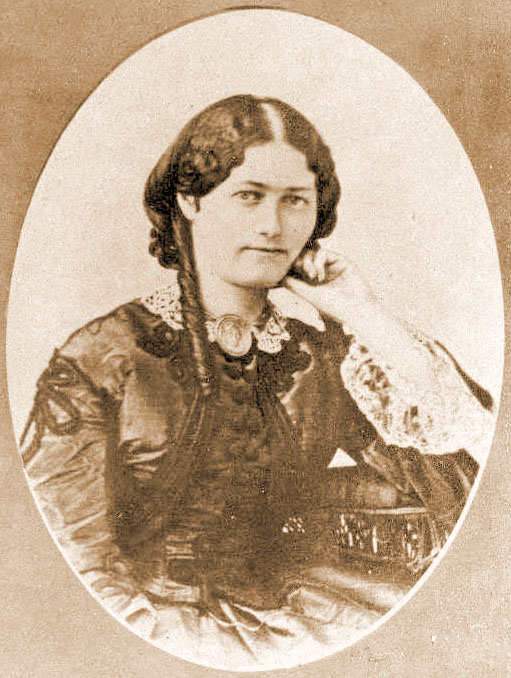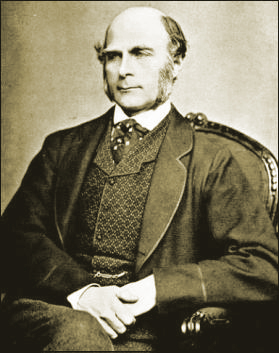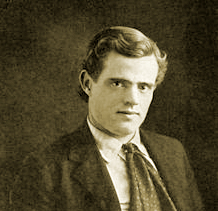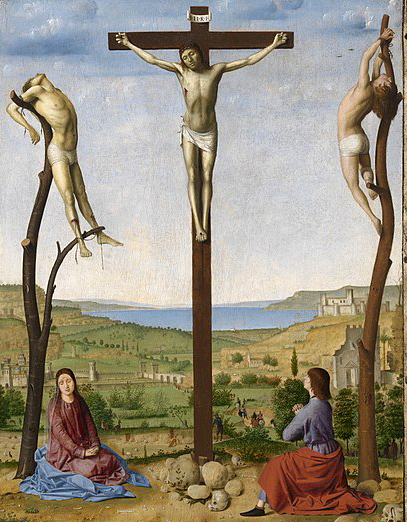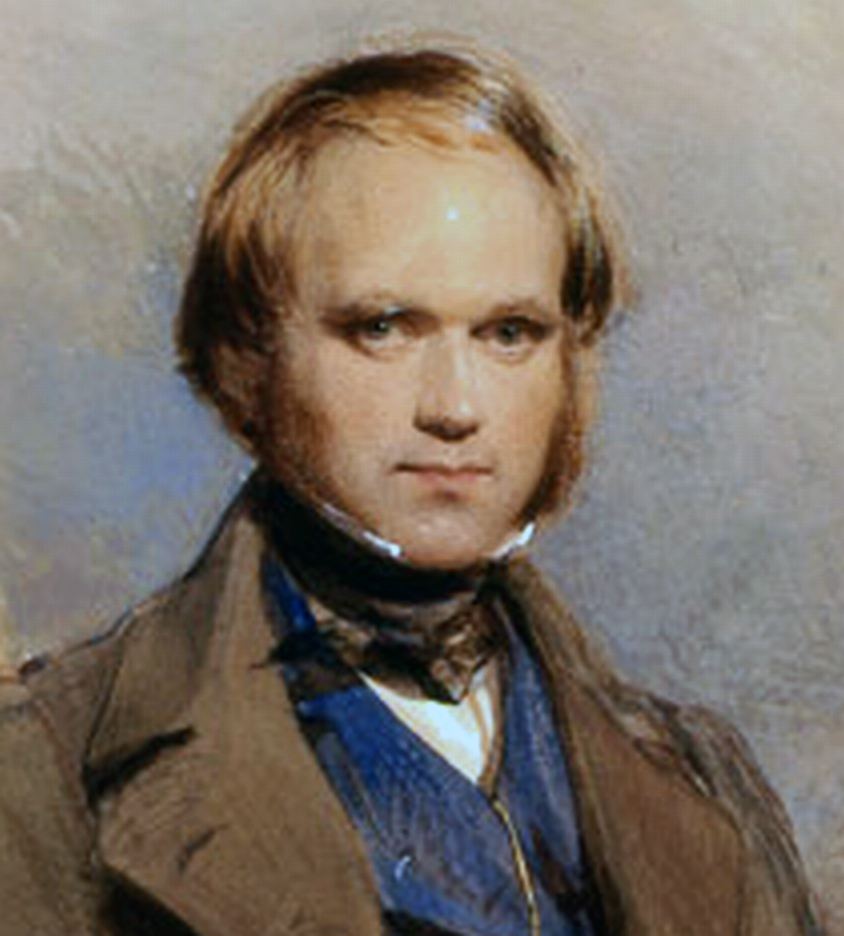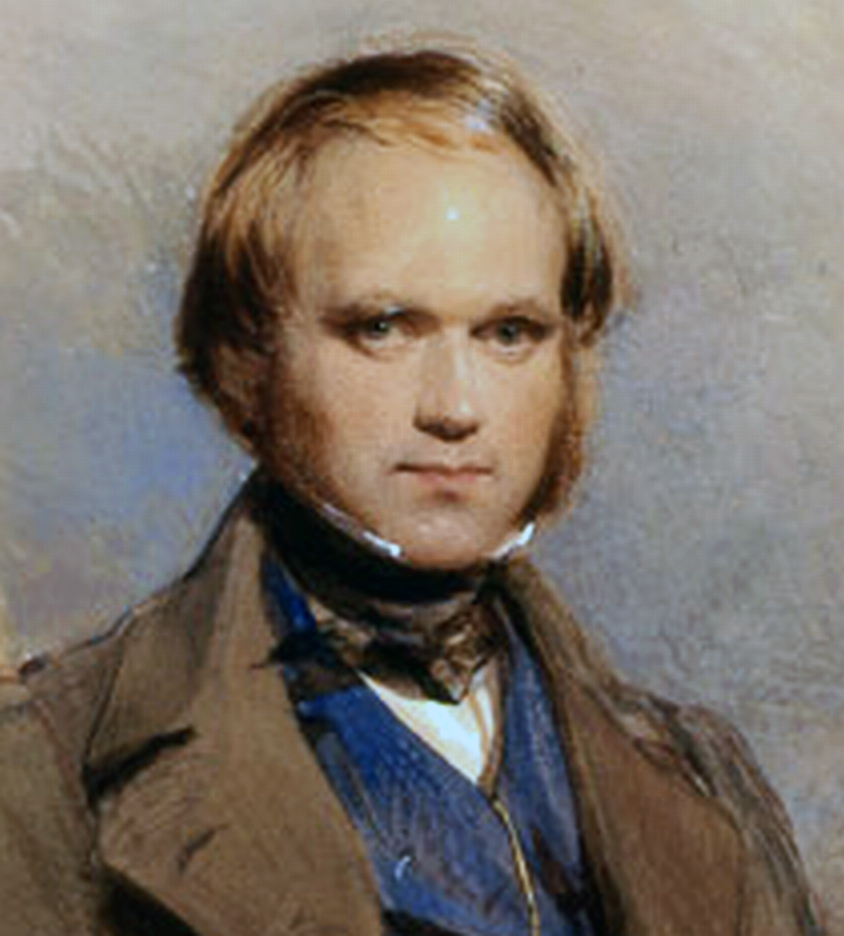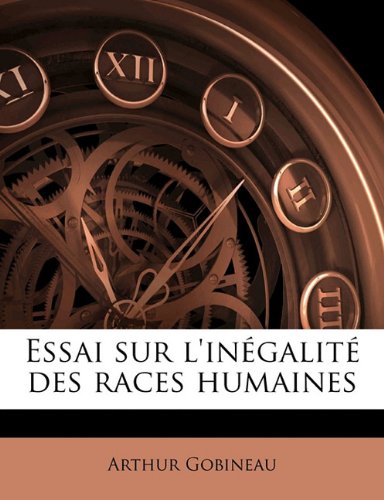by Hans Günther
Editor’s Note: “The Nordic ideal: A result of the anthropological view of history,” is the last chapter of The Racial Elements of European History by Hans Friedrich Karl Günther, translated to English in 1927. Günther was professor of race science in Berlin during the Third Reich.
______ 卐 ______
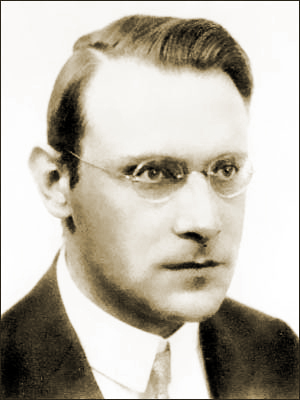 If degeneration (that is, a heavy increase in inferior hereditary tendencies) and denordization (that is, disappearance of the Nordic blood) have brought the Asiatic and south European peoples of Indo-European speech to their decay and fall, and if degeneration and denordization now, in turn, threaten the decay and fall of the peoples of Germanic speech, then the task is clearly to be seen which must be taken in hand, if there is still enough power of judgment left: the advancement of the peoples of Germanic speech will be brought about through an increase of the valuable and healthy hereditary tendencies, and an increase of the Nordic blood. The works on general eugenics show how the valuable hereditary tendencies can be increased. Here, therefore, we will only deal with the question of the renewal of the Nordic element.
If degeneration (that is, a heavy increase in inferior hereditary tendencies) and denordization (that is, disappearance of the Nordic blood) have brought the Asiatic and south European peoples of Indo-European speech to their decay and fall, and if degeneration and denordization now, in turn, threaten the decay and fall of the peoples of Germanic speech, then the task is clearly to be seen which must be taken in hand, if there is still enough power of judgment left: the advancement of the peoples of Germanic speech will be brought about through an increase of the valuable and healthy hereditary tendencies, and an increase of the Nordic blood. The works on general eugenics show how the valuable hereditary tendencies can be increased. Here, therefore, we will only deal with the question of the renewal of the Nordic element.
The French Count Arthur Gobineau (1816-82), was the first to point out in his work, Essai sur l’inégalité des races humaines (1853-5), the importance of the Nordic race for the life of the peoples. Count Gobineau, too, was the first to see that, through the mixture of the Nordic with other races, the way was being prepared for what today (with Spengler) is called the “Fall of the West”. Gobineau’s personality as investigator and poet (“all the conquering strength of this man”) has been described by Schemann, and it is, thanks to Schemann, through his foundation in 1894 of the Gobineau Society (to further Gobineau’s ideas), and through his translation of the Essay on the Inequality of Human Races, which appeared 1898-1901, that Gobineau’s name and the foundations he traced for the Nordic ideal have not fallen into forgetfulness. The very great importance of Gobineau’s work in the history of the culture of our day is shown by Schemann in his book, Gobineaus Rassenwerk (1910).
It is evident that Gobineau’s work on race, which was carried out before investigations into race had reached any tangible results, is in many of its details no longer tenable today. The basic thought of this work, however, stands secure. From the standpoint of racial science we may express ourselves as to Gobineau’s work in somewhat the same way as Eugen Fischer, the anthropologist: “The racial ideal must and will force its way, if not quite in the form given it by Gobineau, at any rate from the wider point of view quite in his sense; he was the great forerunner.”
The turn of the century, when Schemann’s translation appeared, may be said to be the time from which onwards a certain interest in racial questions was aroused. About the same time, too, in 1899, appeared the work which for the first time brought the racial ideal, and particularly the Nordic ideal, into the consciousness of a very wide circle through the enthusiasm, and also the opposition, which it aroused: this work was The Foundations of the Nineteenth Century, by H. S. Chamberlain (born 1855), at that time an Englishman, now a German. On this work from the standpoint of racial science we may pass a judgment somewhat like that of Eugen Fischer: “Undeterred by the weak foundations of many details, and recklessly changing even well-established conceptions to serve his purpose, he raises a bold structure of thought, which thus naturally offers a thousand points for attack, so that the real core of the matter escapes attack—and it would stand against it.”
Since the works of Gobineau and Chamberlain appeared, many investigators, in the realms of natural and social science, have devoted themselves eagerly to bringing light into racial questions, so that today not only the core of the theory both of Gobineau and of Chamberlain stands secure, but also much new territory has been won for an ideal of the Nordic race. A new standpoint in history, the “racial historical standpoint,” is shaping itself.
The Nordic race ideal naturally meets with most attention among those peoples which today still have a strong strain of Nordic blood, of whom some are even still very predominantly Nordic—that is, among the peoples of Germanic speech in Europe and North America. It is unlikely that Gobineau’s thought will find a home among the peoples of Romance speech, even though the first scientific work from the racial historical standpoint, L’Aryen, son rôle social (which likewise appeared in 1899), has a Frenchman, Georges Vacher de Lapouge, for its author. Denordization has probably already gone too far in France also. Any great attention towards race questions is unlikely, too, among peoples of Slav speech.
But the result was bound to be that in all those peoples who came to know Gobineau’s theory there were some persons who were deeply moved by them. Since the end of last century we can, as was said above, even speak of a growing interest in race questions, although we cannot yet speak of a spread of clear ideas. Following the terms used by Gobineau and Chamberlain, we come here and there upon more or less clear conceptions of the need for keeping the “Germanic” blood pure, or (following Lapouge) of keeping the “Aryan” blood pure. In this way the door is always left wide open to the confusion of race and people or of racial and linguistic membership, and a clear definition of aims is impossible. What was (and still is) lacking is a knowledge of the conception of “race”, and a knowledge of the races making up the Germanic peoples (that is, peoples speaking Germanic tongues) and the Indo-European peoples (that is, peoples speaking Indo- European tongues). There was (and still is) lacking a due consideration of the racial idiotype (hereditary formation) of the Nordic man, as the creator of the values which characterize the culture of the Indo-European (“Aryan”) and the Germanic peoples. A racial anthropology of Europe could not be written in Gobineau’s time. Many detailed investigations were still needed.
But more was (and is still) wanting: Gobineau, like his contemporaries, had as yet no knowledge of the importance of selection for the life of peoples. The Nordic race may go under without having been mixed with other races, if it loses to other races in the competition of the birth-rate, if in the Nordic race the marriage rate is smaller, the marrying age higher, and the births fewer. Besides an insight into the “unique importance of the Nordic race” (Lenz) there must be also a due knowledge of the laws of heredity and the phenomena of selection, and this knowledge is just beginning to have its deeper effect on some of the members of various nations.
Maupertius (1744, 1746) and Kant (1775, 1785, 1790) had been the first to point out the importance of selection for living beings. But the influence of the conception of selection only really begins to show itself after the foundations of modern biology were laid by Darwin’s Origin of Species in 1859. The conception of selection was bound to have an effect on the view taken of the destiny of the peoples. Darwin’s cousin, Francis Galton (1822-1911), the “father of eugenics,” was the first to see this. He was the first to show that it is not environment but heredity which is the decisive factor for all living beings, and therefore for man too, and drew the outlines of a theory of eugenics in the knowledge that the improvement of a people is only possible by a sensible increase of the higher hereditary qualities. But it took nearly forty years for Galton’s importance to be rightly understood and for his work to bear fruit.
Galton’s views had as yet no scientific theory of heredity on which to build. This was created in its main outlines by Johann Mendel (1822-84), an Augustinian father in Brünn (in religion he was known as Gregor), whose life-work, after its recovery in 1900, had so deep an effect that research after research was undertaken, and today a wide-embracing science of heredity stands secure.
Through researches such as these Gobineau’s teachings received a deeper meaning, and found fresh support from all these sources, from the sciences of heredity, eugenics, and race: the Nordic movement was born. It had to come into being in those countries where there was still enough Nordic blood running in the peoples to make a Nordic new birth possible. Thus in Germany societies have been founded aiming at the propagation of the Nordic ideal; thus societies of the same kind have been founded in the United States; and such societies would seem sometimes to go beyond these countries.
If the Nordic ideal in Germany has been active longer than in other countries, it would seem, owing to the splitting up of its followers into small groups, and to put a bar on the unwished-for immigration from south and east Europe. Immigration from Asia, and the immigration of undesirables in general, is forbidden. Grant himself has been chosen as vice-president of the Immigration Restriction League. It may be presumed that the Immigration Laws as now passed are only the first step to still more definite laws dealing with race and eugenics. In North America, especially, where there is the opportunity to examine the races and racial mixtures of Europe from the point of view of their civic worth, the importance of the Nordic race could not stay hidden. Leading statesmen have seen the importance of this race, and are proclaiming their knowledge. In North America a significant change is taking place in our own day: Europe as an area of emigration is no longer looked at in the light of its states or peoples, but in the light of its races. How Germany (or the pick of German emigrants) in this regard strikes America, may be seen from the fact that Germany, as a land of emigrants, is the most highly favoured of all European countries.
The peril of denordization (Finis Americae, Grant) has been recognized by many Americans since Grant’s book appeared. Associations have been formed among the Nordic and predominantly Nordic Americans of Anglo-Saxon descent, such as “The Nordic Guard,” and among Americans of German descent (“The Nordic Aryan Federation,” and so on). Some of the Nordic-minded North Americans seem to have joined together in co-operative unions, so as to make themselves gradually economically independent of big capital in non-Nordic hands. It would seem as though the Nordic-minded sections of North America had begun with great forethought and efficiency to take steps for the maintenance and increase of Nordic blood. A better insight, however, is perhaps still needed into the importance of the birth-rate for all such aims.
When it is remembered that the Nordic ideal in Germany had taken root here and there as long ago as the end of last century, we do not get, on the whole, from the Nordic strivings of this country that picture of unity and purpose which is shown by North America. However, we must not overlook the economically very straitened circumstances in which the German followers of the Nordic ideal, who in greatest part belong to the middle classes, find themselves—circumstances which are always piling up hindrances to any forward striving. The hindrances, however, in the path of a Nordic movement lie partly in the German nature itself, in the splitting up into small exclusive groups each with its own “standpoint,” which is found over and over again. This splitting up is the reason why the “societies for the defence of the Nordic race” (Ploetz) in Germany can only be looked on as the beginning of an interest in race questions, and why we must agree with Ploetz when he speaks of these “defensive societies” as being “considerably poorer in membership and influence than those of the Jews”; indeed, we cannot yet speak of any “influence” of the Nordic ideal.
These endeavours along Nordic lines, however, are not to be undervalued as tokens of an awakening attention to race questions. Those among the youth who have been gripped by the Nordic ideal have already done much to spread their views, even under the crushing conditions of today in Germany, and in spite of the lack of money. The beginnings may be humble, but the deep change is full of importance; “Individualism,” so highly prized in the nineteenth century, and still loudly proclaimed by yesterday’s generation, is coming to an end. The stress laid on each man’s individuality, which up till yesterday was proclaimed with the resounding shout of “Be thyself,” has become a matter of doubt, even of contempt, to a newer generation. It set me pondering, when, during the writing of this book, the statement of the aims of a “Young Nordic Association” reached me, in which I find the following sentence: “We wish to keep the thought always before us that, if our race is not to perish, it is a question not only of choosing a Nordic mate, but over and above this, of helping our race through our marriage to a victorious birth-rate.”
Up to the other day such a view of life would not have met with any understanding, and to yesterday’s generation it must still seem beyond comprehension. The present age, indeed, was brought up amidst the ideas of the “natural equality of all men,” and of the distinct individuality of each one of us (“Individualism,” “Cultivation of personality”). When we look back today, we are astonished to see how long the biologically untenable theories of the Age of Enlightenment and of Rousseau (1712-78) could hold the field, and how, even today, they determine the attitude towards life of great masses of men, although men like Fichte and Carlyle had already gone beyond such views. Although really discredited, the ideas of equality and individualism still hold the field, since they satisfy the impulses of an age of advanced degeneration and denordization, or at least hold out hopes of doing so, and yield a good profit to those exploiting this age. If, without giving any heed to the definitions of current political theories, we investigate quite empirically what is the prevailing idea among the Western peoples of the essential nature of a nation, we shall find that by a nation no more is generally understood than the sum of the now living citizens of a given State. We shall find, further, that the purpose of the State is generally held to be no more than the satisfaction of the daily needs of this sum of individuals, or else only of the sum of individuals who are banded together to make up a majority. The greatest possible amount of “happiness” for individuals is to be won by majority decisions.
Racial and eugenic insight brings a different idea of the true nature of a people. A people is then looked upon as a fellowship with a common destiny of the past, the living, and the coming generations—a fellowship with one destiny, rooted in responsibility towards the nation’s past, and looking towards its responsibility to the nation’s future, to the coming generations. The generation living at any time within such a people is seen by the Nordic ideal as a fellowship of aims, which strives for an ever purer presentment of the Nordic nature in this people. It is thus only that the individual takes a directive share in the national life through his active responsibility. But in this fellowship of aims it is the predominantly Nordic men who have the heaviest duties: “O, my brothers, I dedicate and appoint you to a new nobility: ye shall become my shapers and begetters, and sowers of the future” (Nietzsche, Also sprach Zarathustra).
The striving that can be seen among the youth for an “organic” philosophy of life—that is, a philosophy sprung from the people and the native land, bound up with the laws of life, and opposed to all “individualism”—must in the end bind this youth to the life of the homeland and of its people, just as the German felt himself bound in early times, to whom the clan tie was the very core of his life. It could be shown that the old German view of life was so in harmony with the laws of life that it was bound to increase the racial and eugenic qualities of the Germans, and that, with the disappearance of this view of life in the Middle Ages, both the race and the inheritance of health were bound to be endangered. And a Nordic movement will always seek models for its spiritual guidance in the old Germanic world, which was an unsullied expression of the Nordic nature.
In the nations of Germanic speech the Nordic ideal still links always with popular traditions handed down from Germanic forbears whose Nordic appearance and nature is still within the knowledge of many. Unexplained beliefs, unconscious racial insight, are always showing themselves; this is seen in the fact that in Germany a tall, fair, blue-eyed person is felt to be a “true German,” and in the fact that the public adoption offices in Germany are asked by childless couples wishing to adopt children far oftener for fair, blue-eyed, than for dark ones. The Nordic ideal as the conception of an aim has no difficulty in taking root within the peoples of Germanic speech, for in these peoples the attributes of the healthy, capable, and high-minded, and of the handsome man, are more or less consciously still summed up in the Nordic figure. Thus the Nordic ideal becomes an ideal of unity: that which is common to all the divisions of the German people—although they may have strains of other races, and so differ from one another—is the Nordic strain. What is common to northern and to southern England—although the south may show a stronger Mediterranean strain—is the Nordic strain. It is to be particularly noted that in the parts of the German-speaking area which are on the whole predominantly Dinaric, and in Austria, too, the Nordic ideal has taken root, and unions of predominantly Nordic men have been formed.
Thus a hope opens out for some union among the peoples of Germanic speech; what is common to these peoples, although they may show strains of various races, is the Nordic strain. If the Nordic ideal takes root within them, it must necessarily come to be an ideal of harmony and peace. Nothing could be a better foundation and bulwark of peace among the leading peoples than the awakening of the racial consciousness of the peoples of Germanic speech. During the Great War Grant had written that this was essentially a civil war, and had compared this war in its racially destructive effects to the Peloponnesian War between the two leading Hellenic tribes. The Nordic-minded men within the peoples of Germanic speech must strive after such an influence on the governments and public opinion, that a war which has so destroyed the stock of Nordic blood as the Great War has done shall never again be possible, nor a war in the future into which the nations are dragged in the way described by Morhardt, the former president of the French League for the Rights of Man, in his book, Les preuves (Paris, 1925). The Nordic ideal must widen out into the All-Nordic ideal; and in its objects and nature the All-Nordic ideal would necessarily be at the same time the ideal of the sacredness of peace among the peoples of Germanic speech.
In the war of today, and still more in that of tomorrow, there can no longer be any thought of a “prize of victory” which could outweigh the contra-selection necessarily bound up with any war. For any one who has come to see this, it seems very doubtful whether even the most favourable political result of a contest deserves to be called a “victory,” if the fruits of this “victory” fall to those elements of a nation who, as a result of their hereditary qualities, have slipped through the meshes of the modern war-sieve. The real victims in any future war between the Great Powers, whether in the losing or in the “winning” nation, are the hereditary classes standing out by their capacity in war and spirit of sacrifice. It will be one of the tasks of the followers of the Nordic ideal to bring this home to their peoples and governments.
If this prospect of a political influence wielded by the Nordic ideal seems today a very bold forecast, yet the task of bringing about a Nordic revival seems to arise very obviously from the history of the (Indo-European) peoples under Nordic leadership, as the most natural ideal to set against the “decline” which today is also threatening the peoples of Germanic speech. There is no objection against the Nordic ideal which can be given any weight in the face of a situation which Eugen Fischer (in 1910) described as follows for the German people: “Today in Italy, Spain, and Portugal, the Germanic blood, the Nordic race, has already disappeared. Decline, in part insignificance, is the result. France is the next nation that will feel the truth of this; and then it will be our turn, without any doubt whatever, if things go on as they have gone and are going today.” And since this utterance there has been the dreadful contra-selection of the Great War.
This being the situation, the problem is how to put a stop to denordization, and how to find means to bring about a Nordic revival. How are Nordics and those partly Nordic to attain to earlier marriages and larger families?—that is the question from the physical side of life. How is the spirit of responsibility, of efficiency, and of devotion to racial aims to be aroused in a world of selfishness, of degeneration, and of unbounded “individualism”?—that is the question from the spiritual side of life.
Once this question is seen by thoughtful men in the peoples of Germanic speech to be the one vital question for these peoples, then they will have to strive to implant in the predominantly Nordic people of all classes a spirit of racial responsibility, and to summon their whole nation to a community of aims. An age of unlimited racial mixture has left the men of the present day physically and mentally rudderless, and thus powerless for any clear decision. There is no longer any ideal of physical beauty and spiritual strength to make that bracing call on the living energies which fell to the lot of earlier times. If selection within a people cannot be directed towards an ideal, unconsciously or consciously pursued, then its power to raise to a higher level grows weaker and weaker, and it ends by changing its direction, turning its action towards the less creative races, and the inferior hereditary tendencies. Every people has had assigned to it a particular direction of development, its own special path of selective advance. The selective advance in the peoples of Germanic speech can have as its goal only the physical and spiritual picture presented by the Nordic race. In this sense the Nordic race is (to use Kant’s expression) not given as a gift but as a task; and in this sense it was that, in speaking of “the Nordic ideal among the Germans,” we necessarily spoke of the Nordic man as the model for the working of selection in the German people, and showed that no less a task is laid on the Nordic movement than the revival of a whole culture.
The question is not so much whether we men now living are more or less Nordic; but the question put to us is whether we have courage enough to make ready for future generations a world cleansing itself racially and eugenically. When any people of Indo- European speech has been denordicized, the process has always gone on for centuries; the will of Nordic-minded men must boldly span the centuries. Where selection is in question, it is many generations that must be taken into the reckoning, and the Nordic-minded men of the present can only expect one reward in their lifetime for their striving: the consciousness of their courage. Race theory and investigations on heredity call forth and give strength to a New Nobility: the youth, that is, with lofty aims in all ranks which, urged on like Faust, seeks to set its will towards a goal which calls to it from far beyond the individual life.
Since within such a movement profit and gain is not to be looked for, it will always be the movement of a minority. But the spirit of any age has always been formed by minorities only, and so, too, the spirit of that age of the masses in which we live. The Nordic movement in the end seeks to determine the spirit of the age, and more than this spirit, from out of itself. If it did not securely hold this confident hope, there would be no meaning or purpose in any longer thinking the thoughts of Gobineau.
